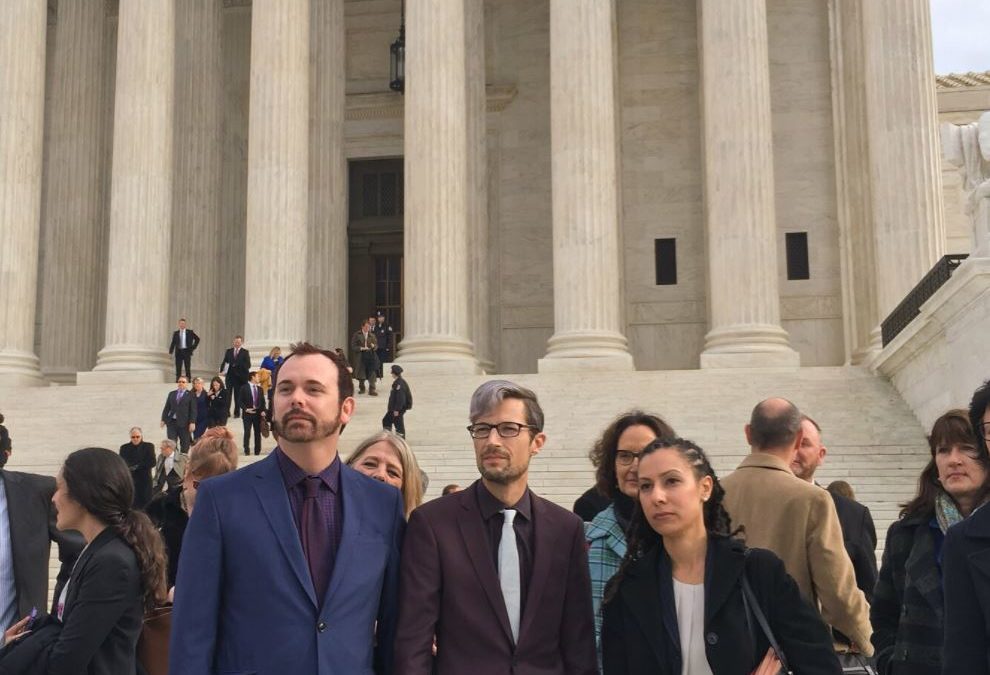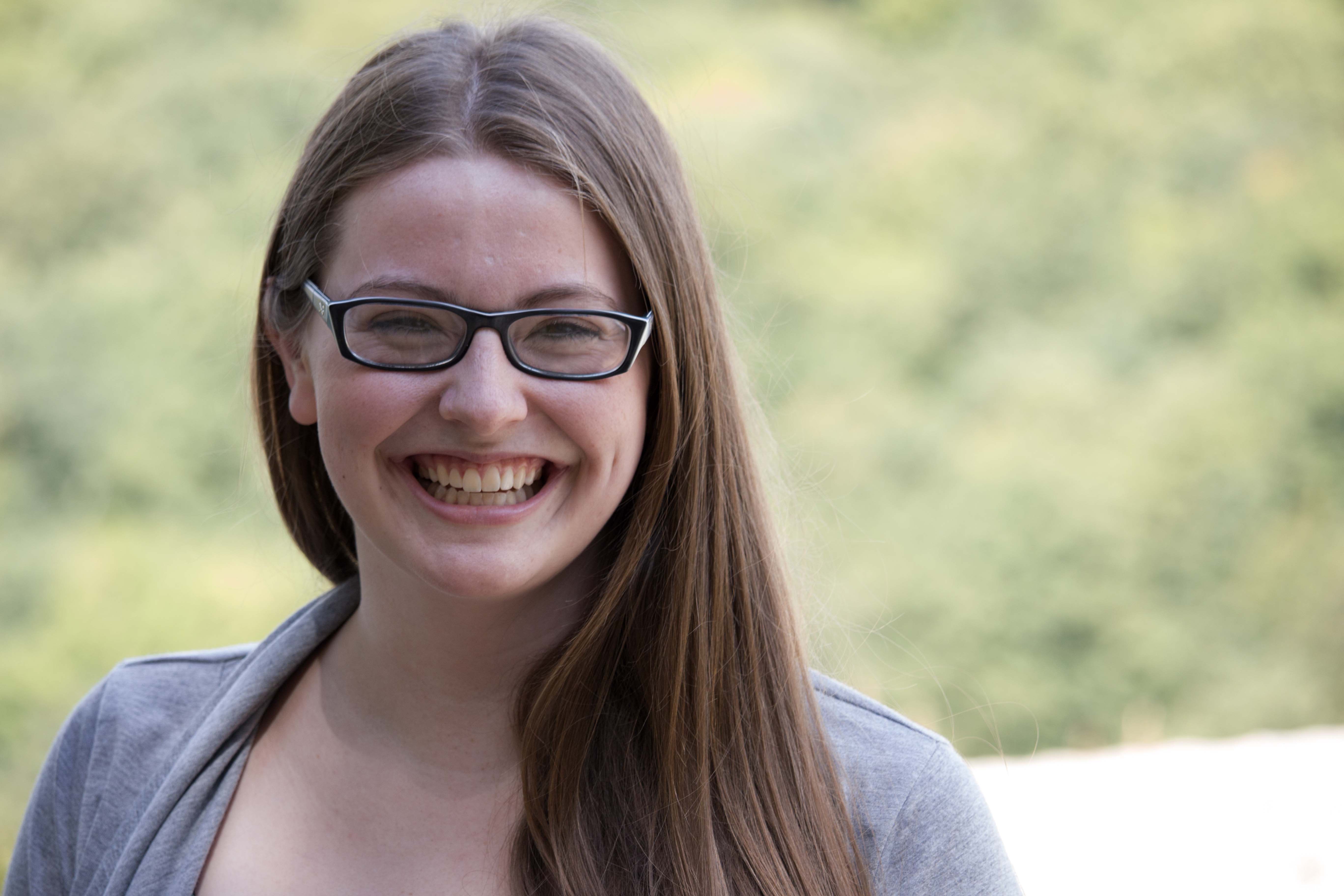With the current state of the country and today’s political climate, it can be hard to stay positive. Even wedding planning, one of the happiest times in a couple’s life, can come with negativity. It’s no secret that homophobia is still alive and well, and it can rear its ugly head when it comes to finding vendors to play a part in your wedding day. The news features stories of couples who are denied wedding cakes when the bakery finds out it’s for an LGBTQ+ wedding. In fact, this unfortunate circumstance has become such an issue, it’s currently being taken up in the Supreme Court in the case of Masterpiece Cakeshop v. Colorado Civil Rights Commission.
Here’s what you need to know
Gay couple Charlie Craig and David Mullins were planning their wedding in 2012 when they headed to Masterpiece Cakeshop in Lakewood, Colorado. When choosing a cake for your big day, the hardest part should be choosing a flavor. For Craig and Mullins, they faced difficulty when they were denied a cake altogether, simply because they were marrying each other.
In case you’re wondering, yes, somehow this bakery is still currently in business five years later despite making national news for being homophobic and highly selective (owner Jack Phillips also refuses to make cakes for Halloween or cakes with anti-American messages).
“For me, it’s never about the person making the request,” Phillips believes. “It’s about the message the person wants the cake to communicate.”
Violating state law
The marriers shared their homophobic experience with the Colorado Civil Rights Commission. In Colorado, the state’s anti-discrimination law was in place to prevent situations exactly like theirs from even happening. The owner of Masterpiece Cakes, Jack Phillips, was in violation of the law.
The Colorado Civil Rights Commission investigated, and to no surprise, found that Phillips’ bakery was guilty of illegal discrimination.
In August of 2015, three years after the initial incident occurred, the Colorado Court of Appeals sided with the Commission, confirming that the bakery discriminated on the basis of sexual orientation, thus violating state law. The Colorado Court of Appeals also concluded that the Colorado Anti-Discrimination Act did not violate Masterpiece Cakeshop’s freedom of speech or freedom to exercise religion.
The Colorado Supreme Court refused to review the case, and it made its way to the United States Supreme Court for review on December 5, 2017.
What’s currently taking place in court
Masterpiece Cakeshop owner Phillips is defending his homophobia, er, “religious beliefs,” in Masterpiece Cakeshop v. Colorado Civil Rights Commission to the Supreme Court. He is represented by Alliance Defending Freedom, a conservative Christian non-profit. Exactly what you would picture to be the exact opposite of the American Civil Liberties Union.
“It’s hard to believe that the government is forcing me to choose between providing for my family and employees and violating my relationship with God,” Phillips shared with the Court on December 5. “That is not freedom. That is not tolerance. I’m profoundly thankful to the Supreme Court of the United States for taking my case. I hope and pray it will affirm the freedom of artists to peacefully express themselves in ways consistent with who they are.
Justice Elena Kagan asked Kristen Waggoner, who represented Philips and Masterpiece Cakeshop, if a hairstylist or make-up artist could refuse service to same-sex couples’s weddings on the basis of religious beliefs. Waggoner said no, which led to further questioning from Kagan, who said that a make-up artist is an artist, just as Waggoner is arguing the baker is an artist. Waggoner’s counter argument was that doing someone’s make-up is not speech, but that a cake is. Kagan was filled with disbelief that Waggoner was arguing that a baker’s craft is self-expression but that a chef’s is not.
“(Justice Sonya) Sotomayor was also worried that a ruling for Masterpiece would not only violate the dignity of same-sex couples, but could also cause real hardships,” wrote the SCOTUS blog. “Most military bases, she noted, are in isolated parts of the United States, many of which are predominantly Christian. That means, she said, that there might only be one or two bakers to provide cakes for same-sex weddings – and a couple could be out of luck if all the available bakers cite religious beliefs as a reason to refuse to make a cake. “We can’t legislate civility and rudeness,” she concluded, but we can legislate behavior.”
Despite the questions being thrown at Waggoner, reports from inside the Supreme Court are showing that the Justices are leaning towards Phillips’ corner.
Chief Justice John Roberts appeared to be on Phillip’ side, asking Colorado Solicitor General Frederick Yarger, who was representing the state, if Catholic Legal Services could refuse a case involving a same-sex couple on the grounds that it violated religious beliefs. Roberts suggested that Catholic Legal Services would be forced to choose between no longer providing legal services or providing services to all couples.
Roberts went on to remind David Cole, who is representing Mullins and Craig, that in the 2015 Supreme Court decision to legalize same-sex marriage equality, the court made the point of adding that “decent and honorable people” may oppose same-sex marriage.
Why should I care?
Masterpiece Cakeshop v. Colorado Civil Rights Commission is about way more than cake, and more than religion. Religious freedom is being used in place of the term for what is actually happening – religious exemption. Phillips is fighting to use religion as an excuse for his refusal to work with Craig and Mullins. If the court rules in Phillips’ favor, it could set a precedent that anyone can be denied anything based on religion.
“Religious exemptions laws would allow doctors, landlords, adoption agencies, funeral homes, and more to legally deny service to LGBTQ families and other marginalized communities simply by citing religious beliefs,” states GLAAD.
So how do couples planning a wedding avoid facing future Masterpiece Cakeshop situations?
Look for equality-minded vendors who have shown their commitment to equality. Read reviews, look for previous clients on their website that represent you as a couple and be sure to use Equally Wed’s equality-minded vendor directory.
Already married and don’t see your wedding vendors on the list? Help other couples planning their wedding by sharing this post with wedding professionals you’ve worked with to help them spread the word that there really are vendors out there who aren’t homophobes fighting for religious exception.
Featured image via @ACLU on Twitter

































